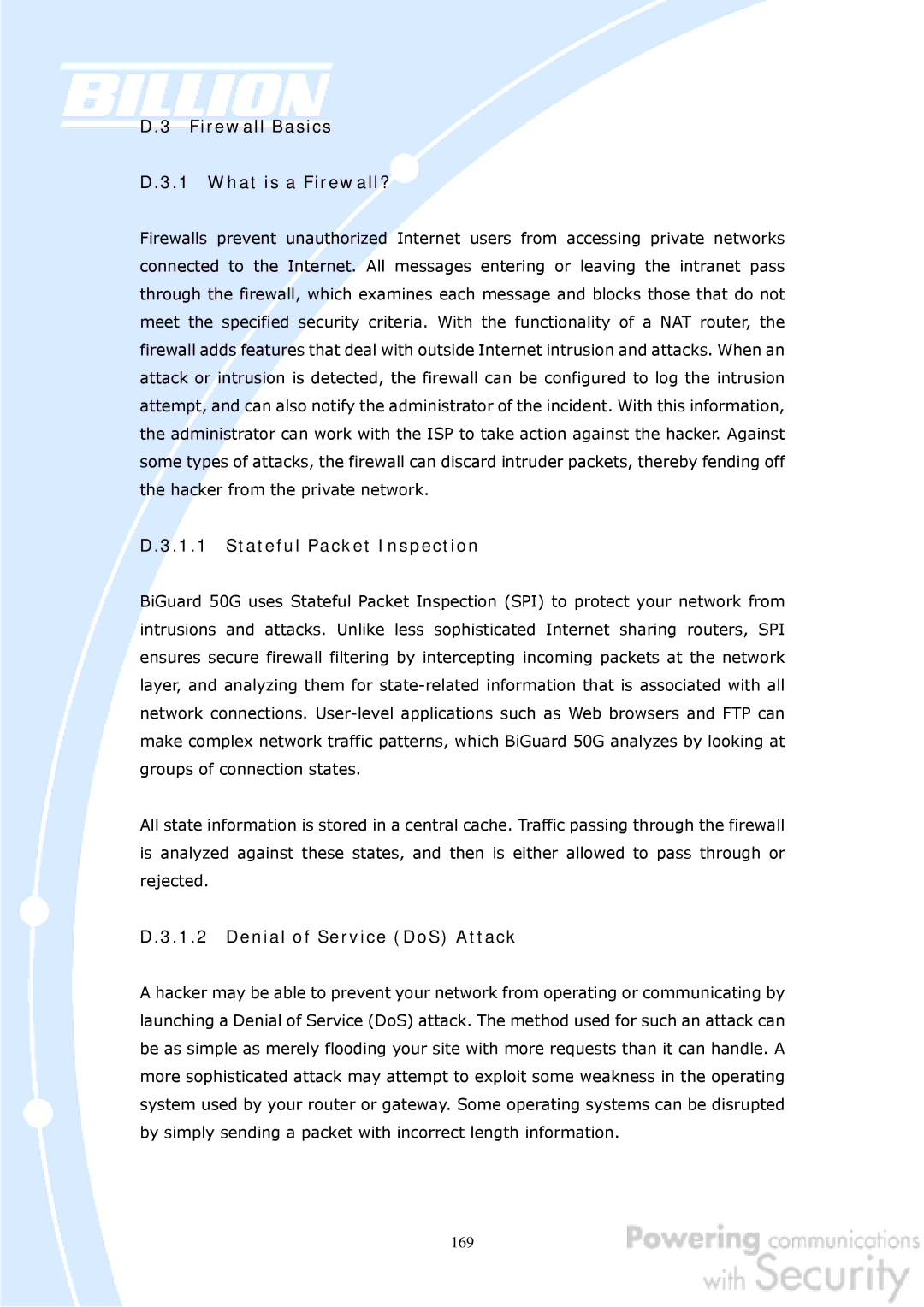
D.3 Firewall Basics
D.3.1 What is a Firewall?
Firewalls prevent unauthorized Internet users from accessing private networks connected to the Internet. All messages entering or leaving the intranet pass through the firewall, which examines each message and blocks those that do not meet the specified security criteria. With the functionality of a NAT router, the firewall adds features that deal with outside Internet intrusion and attacks. When an attack or intrusion is detected, the firewall can be configured to log the intrusion attempt, and can also notify the administrator of the incident. With this information, the administrator can work with the ISP to take action against the hacker. Against some types of attacks, the firewall can discard intruder packets, thereby fending off the hacker from the private network.
D.3.1.1 Stateful Packet Inspection
BiGuard 50G uses Stateful Packet Inspection (SPI) to protect your network from intrusions and attacks. Unlike less sophisticated Internet sharing routers, SPI ensures secure firewall filtering by intercepting incoming packets at the network layer, and analyzing them for
All state information is stored in a central cache. Traffic passing through the firewall is analyzed against these states, and then is either allowed to pass through or rejected.
D.3.1.2 Denial of Service (DoS) Attack
A hacker may be able to prevent your network from operating or communicating by launching a Denial of Service (DoS) attack. The method used for such an attack can be as simple as merely flooding your site with more requests than it can handle. A more sophisticated attack may attempt to exploit some weakness in the operating system used by your router or gateway. Some operating systems can be disrupted by simply sending a packet with incorrect length information.
169
